The Top 50 Albums of 2016

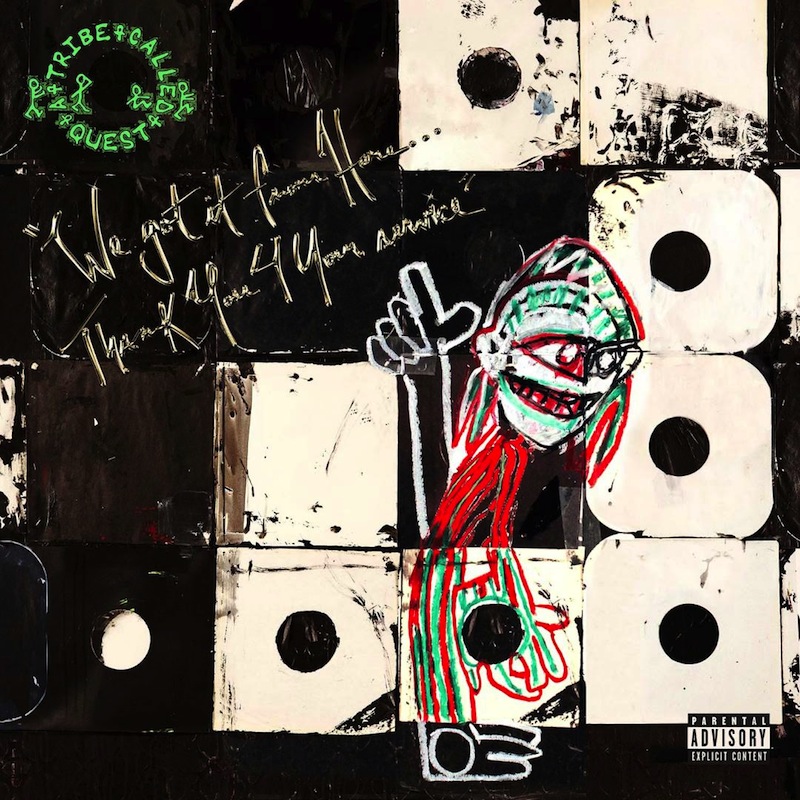
20. A Tribe Called Quest – We Got It From Here…Thank You 4 Your Service
(Epic)
To the untrained eye, relationships in this rap group hadn’t been completely repaired before vocal co-lead Phife Dawg died this past March. That meant 1999’s The Love Movement was ostensibly the Tribe’s final movement. But after reuniting on The Tonight Show Starring Jimmy Fallon on the night of the November 2015 terrorist attacks in Paris, all wrongs were secretly righted. Phife, Q-Tip, Ali Shaheed Muhammad and Jarobi White threw themselves headlong into writing and recording sessions, and the results? The release of this album in early November was at least on the level of both surprising existence and sky-high expectations as The Avalanches’ Wildflower this summer. For my money, the vibe of the Tribe straight up crush the thunder from Down Under. The timing and eloquent messaging of We Got It were perfect, repeatedly pondering the place of minorities and rap in American society days after Donald Trump won the Presidential election. And its sprawling construction and interwoven performances—from the main players as well as guests ranging from Andre 3000 to Elton John—made this album a modern conscious block party, one that feels like an impossibly larger posse LP put out by, say, Odd Future or Wu-Tang Clan. Math and the calendar conspire to leave Quest here on our countdown instead of at some higher rank. Don’t doubt that We Got It is on par with their 1990s masterpiece The Low End Theory and, with time, should similarly polish to a crown jewel of the genre. – Adam Blyweiss
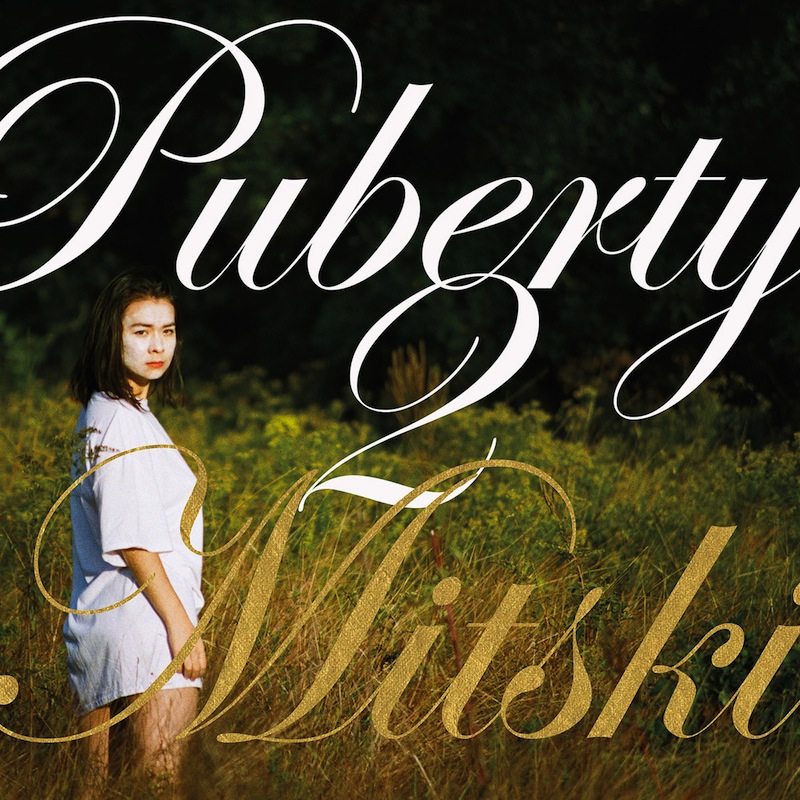
19. Mitski – Puberty 2
(Dead Oceans)
Mitski’s the kind of songwriter who can equate eye contact during sex with having “someone to watch me die,” and actually leave you wondering which she’d rather happen. Puberty 2, her excellent fourth album, is a masterful high-wire act. It’s morbid without being maudlin, depressive without being self-piteous, humorous without being trivial. The album’s title, for instance, slyly undercuts the bloodletting that Mitski undergoes across its half-hour running time. But that tendency toward self-deprecation is part of what Puberty 2 so excellent. It’s an unsparing look inside the singer-songwriter’s head, a tour through her insecurities, fixations, romances and depression. It veers from numbness (“Fireworks,” the best song on the album) to acceptance and renewal (“A Burning Hill”). And then there’s “My Body’s Made of Crushed Little Stars,” a song that manages to be both suicidal and hilarious. “I better ace that interview,” she repeats. “I should tell them that I’m not afraid to die.” If Puberty 2 is that interview, consider it aced. – Sam Prickett
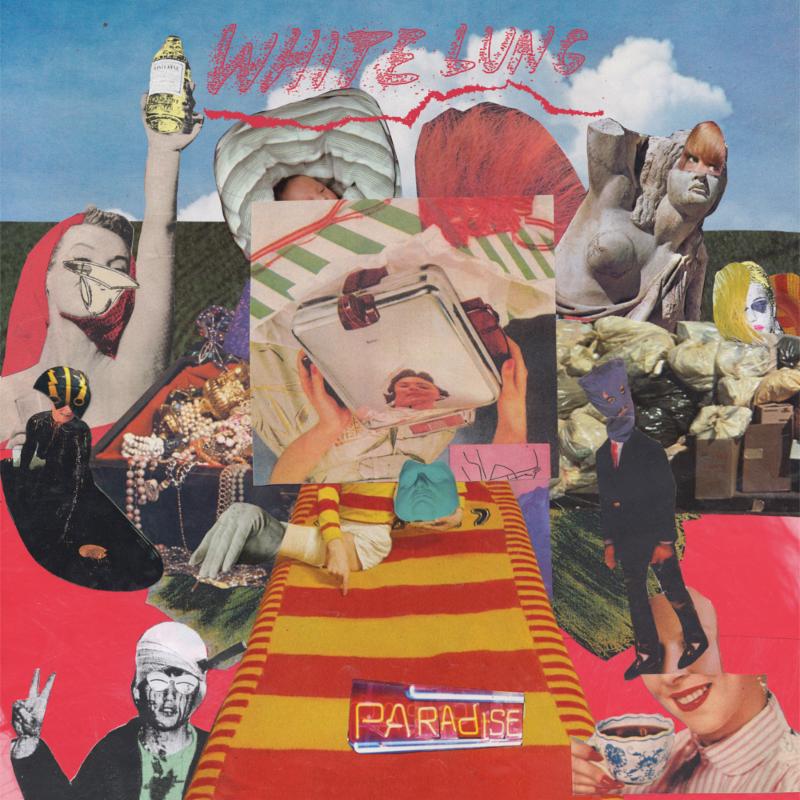
18. White Lung – Paradise
(Domino)
Paradise is a loyal and dogged album. It’s 28 minutes of fitful zeal, defending its kin like a scrappy resistance fighter, lobbing a Molotov cocktail at the opposition and writhing in muck. In essence, White Lung does what they’re great at, and somehow does it even better this time. The album flies at a loud and frantic pace, yet keeps itself grounded and tight with tribal, family-centric lyric themes and tangibly gross imagery. “Kiss Me When I Bleed” maintains this family circle especially, with lyrics like “They say I split my pride in two / when I became a bride for you / but what do they know?” Mish Barber-Way’s forceful, matter-of-fact vocals dull the shock of lines like “stuff me full of septic” and “I’ll fight back like a full blown rotten cancer.” Lines like these draw the listener closer into the dingy places where White Lung finds solace; indeed, the album closes with a track called “Paradise”: “This is all I want / So desolate / So desolate.”
In the midst of nine other tracks packed with turbulent guitar wails and fisticuff drumming is a reprieve, “Below,” the closest White Lung has ever crept to something melodious and soft. Other standout tracks include “Sister,” “Kiss Me When I Bleed,” and “Narcoleptic,” but “Below” is the turning point, instilling faith in me that even if White Lung leaves their punky roots for a gentler sound, they’ll absolutely kill it anyways. – Paula Chew
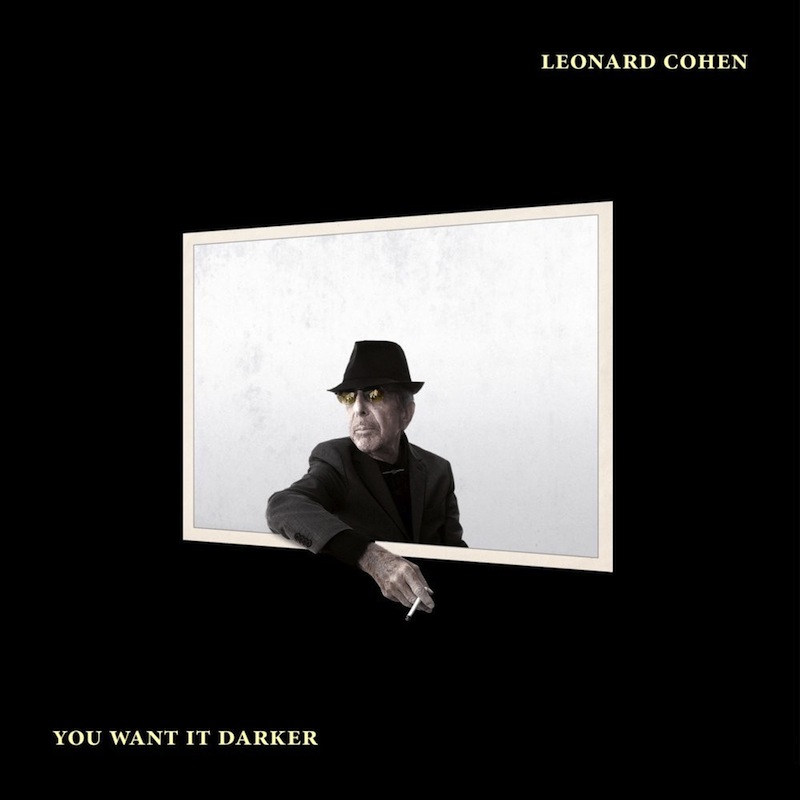
17. Leonard Cohen – You Want It Darker
(Columbia)
It’s a fascinating coincidence that not one, but two of 2016’s best albums are reflections on mortality by iconic artists who would die soon after the albums were released. David Bowie’s penchant for the theatrical secrecy gave Blackstar a retrospective, puzzle-box quality after his surprising death. But that’s never been Leonard Cohen’s style. An October New Yorker profile of the 82-year-old songwriter had him proclaiming that he was “ready to die,” and You Want It Darker doesn’t make any attempt to hide it. The title track opens with mournful chants and Cohen declaring, “I’m ready, my Lord.” In many ways, You Want It Darker feels like the process of Cohen getting his affairs in order. He expresses regrets to a former lover in “On the Level.” He settles old scores in “Leaving the Table.” “Treaty,” meanwhile, is the culmination of at least seven years of writing—and, with its dense religious metaphors, stands the greatest chance of entering the popular canon alongside “Hallelujah.” Like the rest of the album, its instrumentation is minimal, mostly funereal—but the focus is on Cohen’s craggy voice, which feels impossibly cavernous. And now, impossibly timeless.- Sam Prickett
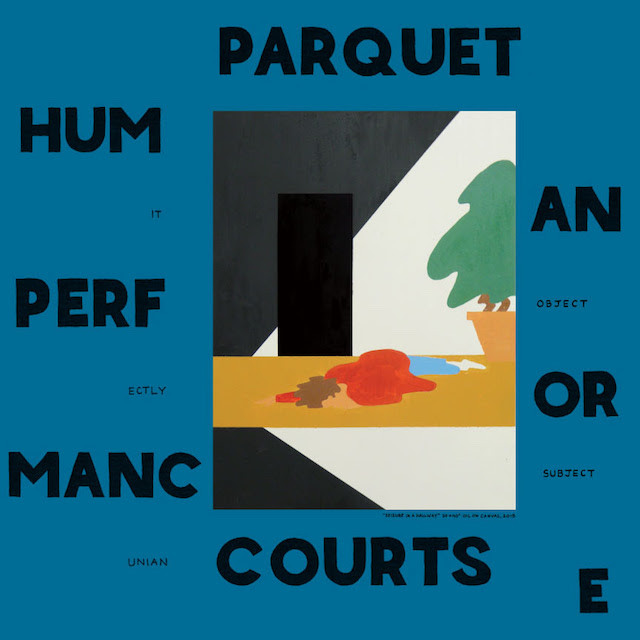
16. Parquet Courts – Human Performance
(Rough Trade)
Alongside cutting edge acts such as Ought and Protomartyr, Parquet Courts have piloted a jet of post-punk revival at rapid release pace, crafting what seems to be a stream of effortless projects layering incisive lyrics over captivating melodies. The band’s “anti-reverb” approach gives a musical face-value to illustrate their artistic frankness. It’s tight, intelligent, and presented with no strings attached. Human Performance is no exception to the band’s incredibly consistent and impressive run since 2011’s American Specialties. The sheer breadth of compositional variety between each track is astounding, as the group has once again found a way to stitch the experimental and conventional across the LP’s tracklisting. From the angular arrangement of “I Was Just Here” to the galloping Americana riffs of “Berlin Got Blurry,” and the conclusive carnivalesque percussions on “It’s Gonna Happen,” Human Performance is a well-informed and expertly executed production. – Patrick Pilch
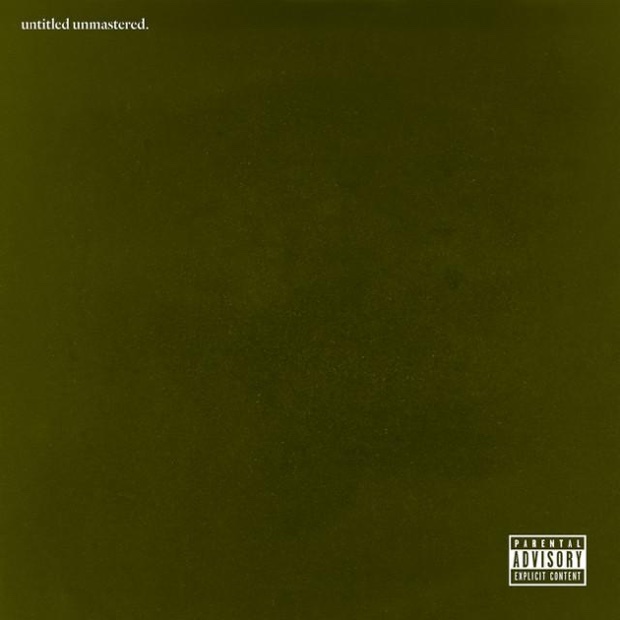
15. Kendrick Lamar – untitled unmastered
(Top Dawg/Aftermath)
Is untitled unmastered an album or an EP? A mixtape? A collection of b-sides? Maybe all of the above. This collection of tracks that didn’t quite make it onto last year’s To Pimp A Butterfly resonates similarly to that record on a lyrical level, summoning energy from Black Lives Matter, prison reform, Compton history and Lamar’s own past to weave the kind of tongue-twisting tapestries we’ve grown to expect from the wordsmith. But they also showcase a different side of Lamar and the creative process behind TPAB. The tracks on untitled unmastered lack the finished production of the full-length record, pushing hard enough into the realm of jazz that one could argue this is more of a jazz record than a hip-hop release. To this degree, it’s also a perspective into how the unique sound of TPAB was released, giving us a glimpse at the full-band dynamics that were later manipulated and re-mixed to create that record’s more psychedelic tone. It’s a window into one of the most creative minds alive, and—at its highest moments—some of Lamar’s best work to date. – A.T. Bossenger
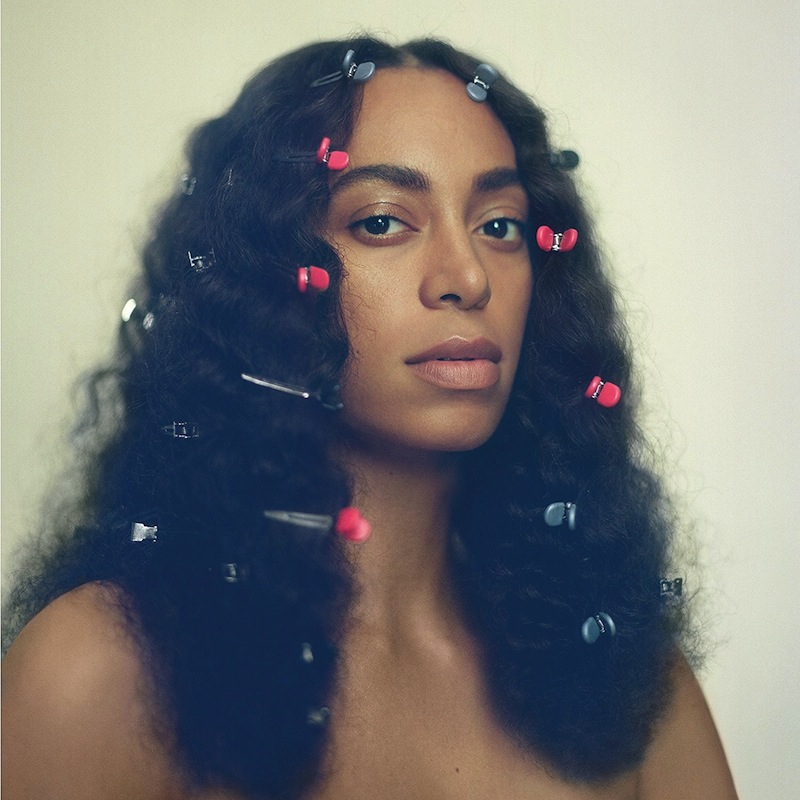
14. Solange – A Seat at the Table
(Saint)
A Seat at the Table isn’t an album for everyone. It’s honest; it’s sophisticated; it’s generously full of smooth-as-silk beats and impeccably curated interludes, and Solange’s delicate vocals make for comfortable listening. But it’s also intensely political, bookending every track with a firsthand account of one of the facets of black life. Some tracks, like “F.U.B.U.,” are beacons of solidarity, couched in dreaminess. Some, like “Cranes In the Sky,” are personal and mellow. In the end, though, A Seat At the Table makes clear exactly who it was made for: “If you don’t understand us and understand what we’ve been through, then you probably wouldn’t understand what this moment is about. This is home.” – Paula Chew
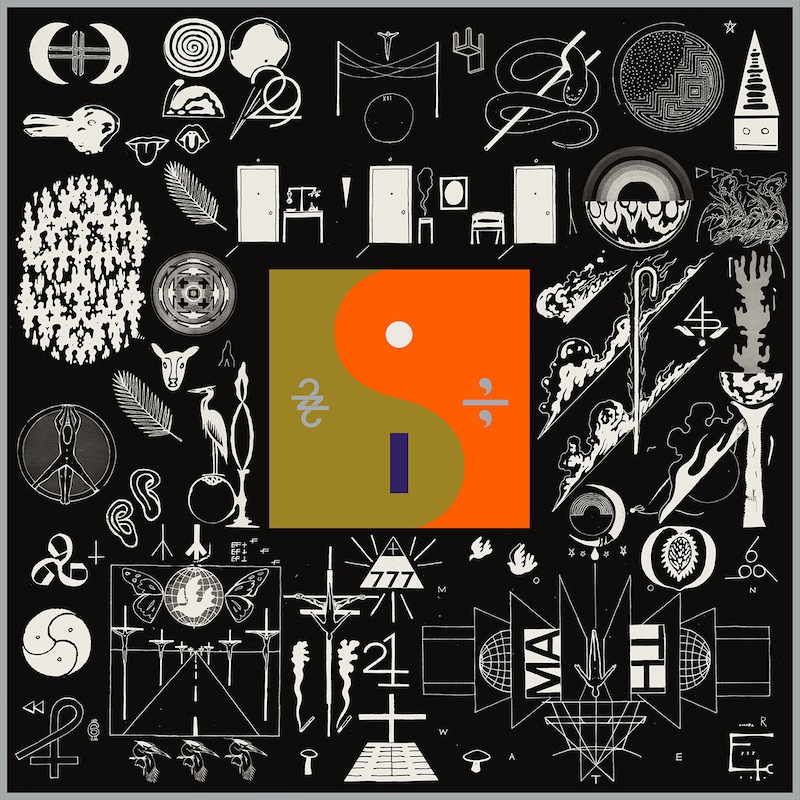
13. Bon Iver – 22, A Million
(Jagjaguwar)
Rare are the moments when something in traditional chamber-based musical forms—your classical symphonies and concertos, your operas, even your self-contained jazz releases and suites—rises to the level of a “hit.” You have centuries of these musics and only a handful of songs, or portions of these compositions, that you can name off the top of your head. Everything in its right place, right? The third Bon Iver album cribs liberally from that playbook. No way in hell would I peg any of its tracks as single-ready or radio-friendly, but taken as a whole 22, A Million is a fascinating indie-pop statement. Naysayers might find that Justin Vernon’s reliance on Auto-Tune, vocoders and his own handcrafted manipulations rubs off too much from past collaborator Kanye West. Rather, let’s look at this as a Dylan-goes-electric moment: Bon Iver goes electronic, streams of data taking on the form of streams of his consciousness. 22, A Million is an outsized version of an artist at work, Vernon sitting with guitar in one hand and tech in another, Photoshopping song structures beyond recognition and endlessly editing his folk-music themes of loss, existence, and faith. Trying to enjoy any one track out of context disrupts the album’s flow, makes the whole thing fall apart. I won’t do it; you shouldn’t either. – Adam Blyweiss

12. Angel Olsen – My Woman
(Jagjaguwar)
It’s almost too perfect that there’s a song on Angel Olsen’s third album, My Woman, called “Those Were the Days.” It’s impossible not to romanticize a kind of nostalgic ideal when listening to My Woman. It’s an album steeped in what was and what could have been—break-ups, regrets, love lost and love slipping through one’s fingers, or at the very least stuck in neutral, as is the case in “Shut Up Kiss Me.” And Olsen delivers those backward- and inward-looking narratives via arrangements both warm and ragged—they sound like they could have been recorded by Fleetwood Mac or Crazy Horse or The Velvet Underground, depending on where you drop the needle.
Yet My Woman has another vintage quality about it that makes it seem of another time altogether: It’s a proper album, sequenced to be heard on two separate sides. And those two sides heavily contrast, like those of Rust Never Sleeps or Low. Side A, with the exception of the electronic driven intro track “Intern,” is all fuzz and fury. Side two is where Olsen keeps the slow burners—the dream-haunting standouts, “Sister” and “Woman.” Side two is also the one that’ll break your heart into a million pieces. On closing track “Pops,” Olsen asks “What is it a heart’s made of?” The answer is embedded in My Woman, an album that delivers an aesthetic and emotional experience that belongs to no era. – Jeff Terich
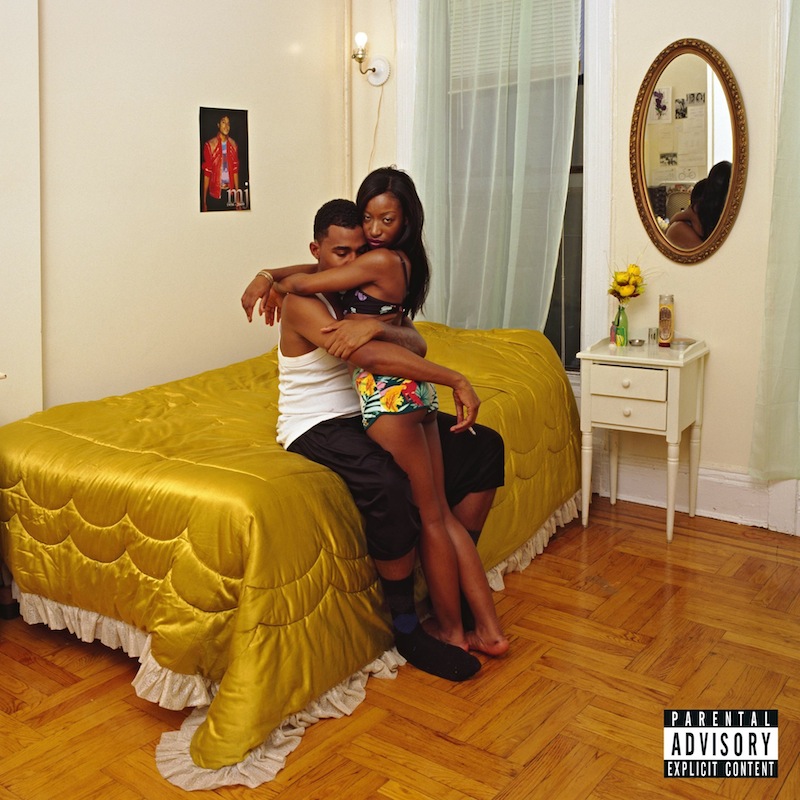
11. Blood Orange – Freetown Sound
(Domino)
This was a politically fraught year. A year that saw the U.K. vote to leave the European Union. That saw the U.S. vote to preserve and embolden White Supremacy (through both subtle and blatant ways). That saw Colombia reject a peace deal that would have formalized the end of five decades of war within the country. This year was a continuous reeling from shocking news and for those of us who are different, who are not white, straight, Christian, cis-gendered, able-bodied men, we feel precarious. We feel scared. Freetown Sound was made before many of these charged events occurred but it does feel strangely prescient. When the album was released, Dev Hynes posted on Instagram stating that the album was intended for those who have been told that they were “not black enough, too black, too queer, not queer the right way.” In other words, for the vulnerable, for everyone who is part of a larger community, who also fears letting individuality and weirdness to truly flourish. Above all Freetown Sound is an exploration of what it is to be Black, using excerpts and poetry to broaden and shed light on different facets of Black culture. And while the album features ruminations on systemic oppression, like his frequent collaborator Solange, Dev Hynes has created an album that feels less like a treatise and more like a sustained conversation within himself. That he not only is trying to make safe spaces for expression for others, but as importantly for himself. – Jackie Im


Best album of 2016: Daisy House “Western Man”
https://daisyhouse.bandcamp.com/album/western-man
Hopefully Blackstar is named the album of the decade as well
Guess we’ll find out a little less than a year from now…
What’s your pick for Album of The Decade mine is Blackstar(as I’ve said above) My pick for Song of the decade is Alright by Kendrick Lamar
Me personally? Probably To Pimp a Butterfly.
But I can’t speak for the whole staff. Though that’ll pretty easily be in the top 5, I’d imagine.
TPAB is second for me third is Yeezus by Kanye 4th Ultraviolence by Lana Del Rey and 5th would probably be either Run the Jewels 2 or Blonde by Frank ocean depending on my mood